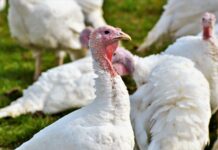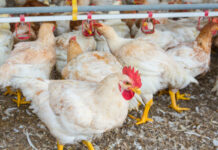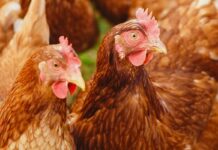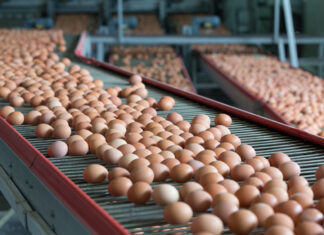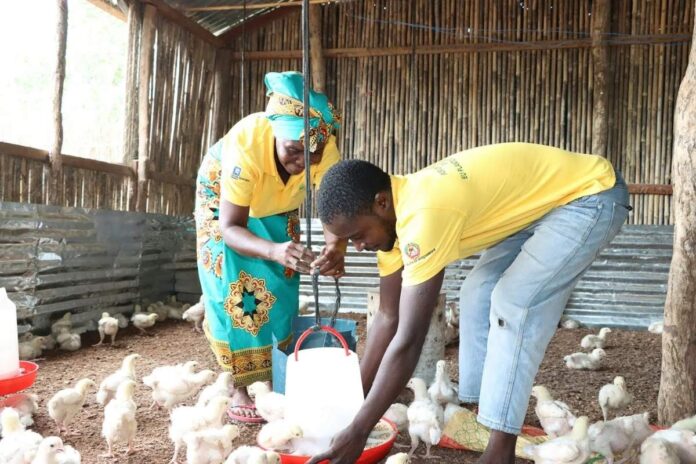
Mozambique, Southern Africa’s second biggest chicken meat producer after South Africa, has received US$33 million (EUR 31 million) from the African Development Bank (AfDB) to support the acceleration of the ongoing transformation of the country’s poultry sector through competitive, inclusive, and sustainable growth.
The new funding supports the development of the poultry sector as part of the broader US$105.45 million (EUR 99.25 million) Inclusive Agri-food Value Chain Development Programme (PROCAVA), an initiative aimed at accelerating “the transformation of the poultry sector in Mozambique through competitive, inclusive, and sustainable growth, with a primary focus on integrating family farming and the private sector into productive poultry value chains, including maize and soybean,” according to the African Development Bank, one of the project’s key financiers.
The Bank is co-financing the project with a total of US$33 million (EUR 31 million), equivalent to 31.3% of total project costs, through the African Development Fund (ADF). The International Fund for Agricultural Development (IFAD) is providing US$42 million (EUR 39.5 million) in joint project financing with the Bank.
The government of Mozambique is seeking an additional US$20 million (EUR 18.8 million) from the Green Climate Fund, while project beneficiaries, including the private sector, will provide at least US$5.6 million (EUR 5.3 million).
The idea to transform Mozambique’s poultry industry was first unveiled in February 2023 during the High-Level Summit, known as Dakar II, held in Dakar, co-hosted by the African Development Bank and the government of Senegal. Dakar II is an integral part of the Bank’s Feed Africa Strategy (2016-2025), which aims to revolutionize African agriculture into a competitive, inclusive, and agribusiness-oriented sector. The summit aimed to “mobilize political, financial, and technical support to facilitate food sovereignty and drive agricultural transformation on a large scale throughout the continent.”
Through PROCAVA, at least 50,800 smallholder farmers, 50% of whom are women and 30% youth, will receive support to increase their net income. Of these, 10,000 will be smallholder poultry producers, while the remaining 40,800 will be producers supported with interventions to strengthen climate resilience in the soybean and maize value chains, both critical for the development of the poultry industry.
“The Bank has decided to disburse 33 million dollars to finance PROCAVA, a recently approved project with an emphasis on chicken farming,” said Flávio Soares da Gama, the AfDB representative in Mozambique.
The AfDB funds will finance several activities, including the establishment of public-private partnerships to manage and operate poultry infrastructure based on a competitive selection process, according to the Bank’s project brief. For instance, the initiative aims to construct two slaughterhouses with cold storage rooms, two centers for the production of broiler day-old chicks, four storage facilities with cold storage rooms, four hatcheries with a capacity of 10,800 day-old chicks per week, egg packing and inspection centers, and breeding units for delivering hatching eggs for incubation.
Moreover, the new financing will enable Mozambique’s poultry industry to establish a revolving grant fund to support poultry farmers, especially those organized in commercially oriented cooperatives, and input suppliers in purchasing inputs, building climate-resilient infrastructure, and procuring primary poultry processing equipment.
Mozambique’s Ministry of Agriculture and Rural Development estimates that the country’s chicken production reached 146,684 tons in 2022, an 8.1% increase from the 135,708 tons produced in 2021. This growth has been attributed to increased government campaigns promoting poultry production and investment-friendly policies that have attracted private sector investments into the industry.
Private investments in Mozambique’s poultry industry are focused on chicken feed infrastructure, such as the two feed mills being developed in Mozambique’s Zambezia and Niassa Provinces with the support of the African Development Bank.
The structure of Mozambique’s poultry industry enables large and vertically integrated companies that produce and sell feed and chicks to distribute poultry market inputs primarily through the out-grower system, in which they provide inputs like seeds, fertilizer, pesticides, chicks, and feed to smaller producers, and collect grown chickens for marketing, according to the AfDB report.
However, the report says, in the rural poultry market “aggregators usually buy from the producers and resell in bulk to the market,” creating a significant channel between rural and urban markets within Mozambique’s poultry industry. This value chain integrates hatcheries, grain producers, feed processors, poultry producers, abattoirs, distributors, and veterinary services.
The Mozambican government, through the Ministry of Agriculture and Rural Development, has previously introduced incentives to attract private investment in the poultry sector, such as the intensification of inspection and control actions against chicken smuggling, the integration of small and medium-sized breeders in the poultry production chain and the increase in corn and soy production have been, to a large extent, driving the sector’s substantial growth in recent years.
Although the outlook for Mozambique’s poultry industry is positive, especially with the PROCAVA initiative, the country must address several constraints that have historically hindered the sector’s growth. These include limited access to funding for purchasing inputs like chicken feed, seeds, and fertilizers for grain producers, as well as equipment for chicken processors.
Successful implementation of the initiative would enable Mozambique to reduce poultry and poultry product imports, particularly from South Africa, Zambia, Zimbabwe, and Brazil, which have created competition for local producers.


